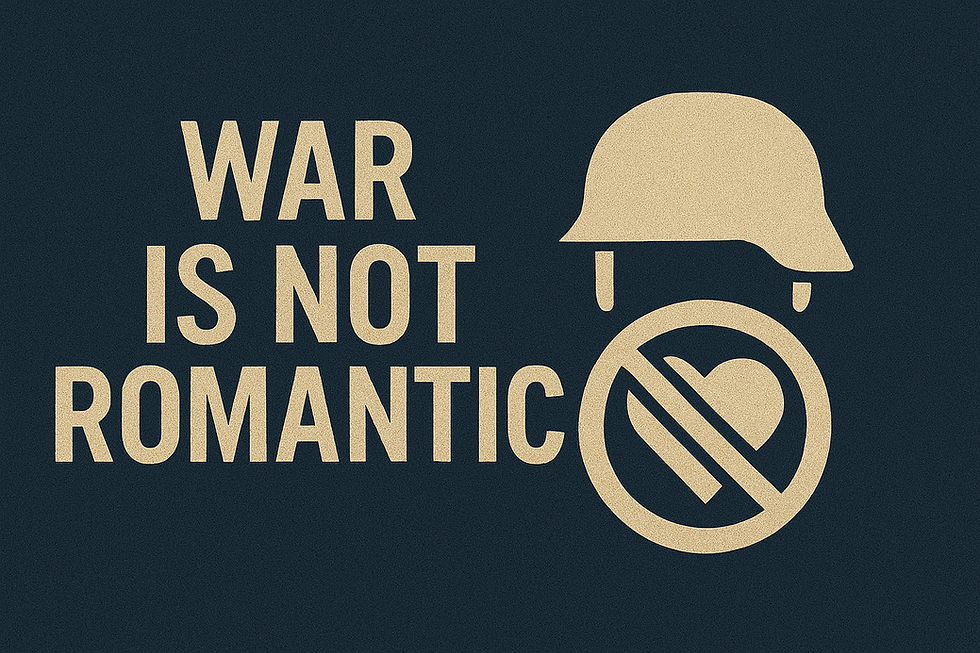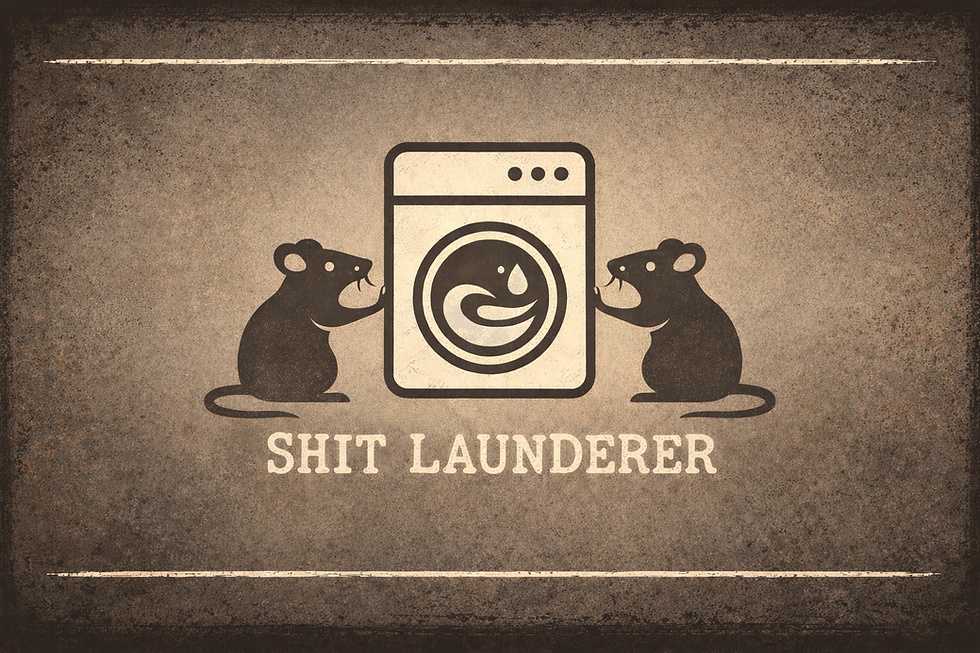Civil War Is Not Romantic and Anyone Selling It Such Cannot Be Trusted
- john raymond
- Sep 16, 2025
- 3 min read

War is not a test of virtue or a rite of passage; it is an industrialized ruin of bodies, homes, and futures. Anyone who sells a romantic version of war—total or civil—is selling a lie in service of power. The only honest vocabulary of war is scarcity, terror, and grief, and the only reliable metric is human damage.
The twentieth century’s clearest ledger is World War II: roughly 45–55 million civilians were killed—more noncombatants than soldiers—obliterating any claim that “glory” attaches to organized killing. The dead are not abstractions; they are families crushed under rubble, starved in sieges, or burned alive in cities whose names schoolchildren still memorize. The National WWII Museum’s tallies, alongside aggregate historical estimates, demonstrate that the principal harvest of “romantic” war is civilian death on a continental scale.
The ledger is still growing. By the end of 2024, at least 123 million people had been forced from their homes by conflict and persecution; by April 2025 the figure still exceeded 122 million—numbers so large they mark a restructuring of human life around flight, camps, and permanent precarity. Displacement is not an inspiring saga; it is the slow violence of lost schooling, untreated illnesses, predation, and statelessness.
The law of war exists precisely because the normal state of war is barbarism. The Geneva Conventions and their Protocols begin from a bleak axiom: if combat cannot be avoided, civilians and those hors de combat must be protected, and attacks must be directed solely at military objectives. That such rules are necessary—and so often violated—refutes every gilded speech about the cleansing powers of battle.
There is, moreover, nothing heroic about the lived mechanics of fighting. Clausewitz called it friction: the accumulation of confusion, fear, exhaustion, broken logistics, miscommunication, and stupid luck that makes “the simplest thing difficult.” The romance merchants never sell friction; they sell choreography. Reality resists them.
So know that romantic war is a propaganda tool, not an aesthetic. It performs three strategic functions:
First, regime security. Leaders facing domestic failure convert suffering into spectacle. Pageantry, myth, and martial nostalgia redirect anger outward, buy time, and stigmatize dissent as treason. The American “Lost Cause” tradition, which rewrote the Confederacy into a chivalric legend, is a canonical case: a defeated rebellion was alchemized into moral theater to launder defeat and preserve an oligarchic racial order. Contemporary autocrats copy the playbook with updated media and symbols.
Second, asymmetric recruitment. Extremist organizations package violence as belonging and transcendence, promising meaning to the alienated. ISIS’s propaganda campaigns—among the most studied of the digital era—explicitly fused pseudo-heroism, adventure, and utopian domesticity to draw thousands into a machine that chews people into statistics. The romance was bait; the reality was slave-taking, mass murder, and obliteration.
Third, corrosion of truth. Romantic frames replace verifiable costs with mythic payoffs and blank-check justifications. Once the audience speaks in fables (“cleansing fire,” “redemption by blood”), empirical debate becomes suspect, legal limits seem petty, and anyone noting civilian harm is denounced as profane. That is how moral inversion works: the story that elevates war is the solvent that dissolves conscience.
But the antidote to romance is not pacifist denial of defensive necessity; it is moral clarity about categories. There are just causes and necessary fights. But there are no romantic wars. The proper stance, even in a just war, is sobriety: minimize harm, protect civilians, keep aims limited and lawful, and end the fighting as soon as the legitimate objective is achieved. Owen’s trench testimony endures because it punctures the sales pitch: Dulce et decorum est is not a slogan—it is a lie.
As such, policymakers, media, and citizens should adopt a disciplined, testable standard whenever conflict is discussed. Name the civilian cost in concrete terms (displacement, malnutrition, epidemic risk), foreground the legal constraints from the first sentence, and force advocates to specify aims, limits, and exit conditions in falsifiable language. Treat any appeal to glory, destiny, cleansing violence, or national “rebirth” as an indicator of strategic bad faith. The burden of proof belongs to those proposing violence; the standard of proof is human survival, not rhetorical uplift.
War is a scourge upon humankind. The maiming, the killing, the taking—it is locust work, not enlightenment. Whoever sells you romance is selling you on becoming a locust. Trust them, and you will inherit ash. The only honorable vocabulary is the one that counts the living and the dead without poetry, refuses myth as a pretext for cruelty, and treats every resort to force as a tragic last resort under law.
Anything else is propaganda—and propaganda is how massacres begin.






Comments